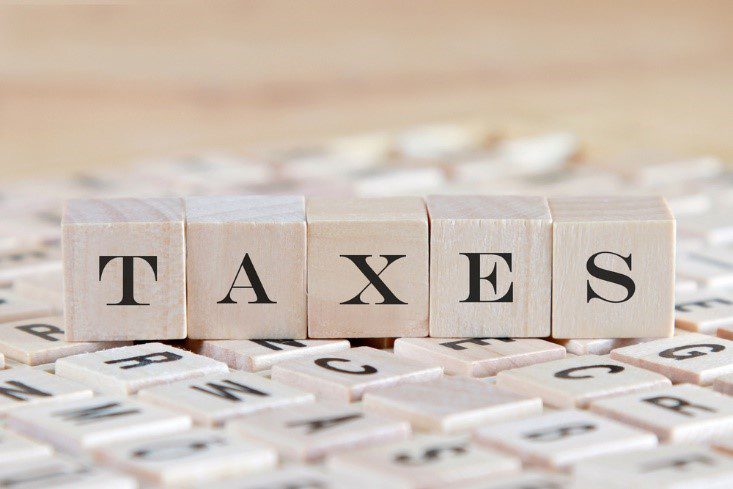It’s hard to believe that tax time is upon us once again. Just like the blooming daffodils and our Lancaster Country farmers preparing their fields for planting, tax time is a springtime ritual—even if no one celebrates it!
With that in mind, you probably landed on this article because you have nagging questions about working through various types of estate-related taxes. You’ve come to the right place, as we often cover taxing matters related to estate administration here on the blog.
In fact, we encourage you to read these two previous articles in addition to today’s post to get a more complete picture of what you need to think about when it comes to dealing with estate administration tax liabilities:
Who Needs to File Estate-Related Taxes?
The types of taxes related to estates in Pennsylvania that you will need to file—including so-called “death taxes” and final income tax returns for a deceased person—vary depending on your relationship to the estate.
You may be a beneficiary of an estate (someone who inherits property or financial assets) or an executor or administrator of the estate. The latter fiduciary role will be responsible for making sure the tax man isn’t forgotten as the estate is probated.
Read on to learn more about the taxes you may need to deal with depending on your role.
The Types of Estate-Related Taxes
Death Taxes: Estate Tax & Inheritance Tax
The term “death taxes” sounds a bit harsh, but it’s important to know that political motivations originally devised the name. We won’t comment on whether these taxes should be repealed. However, the morbid name represents a catch-all for two specific tax types that may be owed at the federal and state levels: estate tax and inheritance tax.
Now, we have a bit of good news for Pennsylvanians—the Commonwealth does not currently levy an estate tax regardless of how valuable that estate might be. Additionally, for most smaller estates—with taxable assets under $11.7 million in 2021—federal estate tax will not apply. This means that most PA executors won’t need to give much thought to estate tax.
Those who are responsible for larger estates, though, should already be working with a knowledgeable attorney to be sure all tax liabilities are accurately accounted for.
On the other hand, Pennsylvania does levy an inheritance tax (not all states do), while the federal government does not. We’ll talk a little bit more about what this tax means for beneficiaries in a few moments. (Or read more in our Understanding Death Taxes article linked above.)
Final Federal and State “Living” Income Tax Returns for Your Loved One
Again calling back to our previous post about understanding death taxes, an estate’s fiduciary is responsible for paying any federal and state income taxes that are due for the deceased individual by April 15th in the calendar year following that person’s death date.
Let us help you!
That means filling out final returns via IRS Form 1040 and PA Form 40 on behalf of your late loved one. If you typically work with a tax prep professional to submit your personal returns, they can help you prepare these forms—or simply reach out to an experienced estate lawyer with your questions.
Fiduciary Income Tax Returns on Income Generated by The Estate
Many first-time estate administrators don’t realize that the estate itself becomes a separate taxpayer on the day after death through the end of the death year, and fiduciary income tax returns may also be required. Because the question of whether these returns need to be filed can be a bit tricky, we recommend consulting an attorney for guidance.
What Taxes Will I Need to Worry About as a Fiduciary?
Short answer—when you work with an experienced probate and estates attorney, you won’t have to worry about anything—we’ll guide you through all of the paperwork and processes in estate administration! (Even if you’re probating an estate from out of town.)
To recap, these are the most common types of estate-related taxes that you’ll need to deal with as an estate fiduciary in Pennsylvania:
- Final Income Taxes for Your Loved One (Federal, State, and Local, as applicable)
- Fiduciary Income Taxes (Federal and State)
- PA Inheritance Tax
- Federal Estate Tax (only for estates with taxable assets over $11.7 million)
I Inherited Assets. What Do I Need to File?
As an heir in Pennsylvania, it is crucial to remember that you will have to report your inheritance on your state income taxes for the tax year you received the asset.
The state has established a schedule based on your relationship to the deceased person that requires you to remit a percentage of any property or financial asset’s value.
- Parent to Child: 4.5%
- Sibling to Sibling: 12%
- Everyone Else: 15%
- Spouse to Spouse and Estate to Charitable Organizations: 0%
Note that the estate’s administrator will give you more information about the documentation you may need to submit with your tax return, as they are responsible for ensuring that these taxes are paid.
Need Help With Estate-Related Tax Matters? Trust May, Herr & Grosh
Dealing with filing taxes can be frustrating under the best of circumstances, and we understand the extra level of stress associated with estate administration tax liabilities. If you are acting as a fiduciary for an estate or trust here in Lancaster, PA, let us help. Our probate and estates attorneys are highly experienced with tax matters, and they can even help you minimize tax liability in some situations.
Don’t subject yourself to the stress of going it alone in sorting through an estate or trust’s tax liabilities or working through any aspect of probate and estate administration. Contact us today for your free initial consultation.



